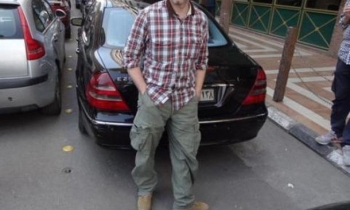A Swiss military court has indicted three Swiss journalists working for the weekly SonntagsBlick for publishing a leaked document last year “dealing with supposed places of detention and interrogation methods used by the US foreign intelligence service (CIA).”

The three journalists – Christoph Grenacher (who is about to leave the newspaper), Sandro Brotz and Beat Jost – will face up to five years in prison for “violating defence secrecy” under article 106, section 1, of the military criminal code when they are tried in April in the northern city of St Gall, Reporters sans Frontières (RSF) reported.
According to the indictment, publication of the leaked document caused considerable damage to Switzerland’s strategic intelligence service. A military justice spokesman said that: “In order to maintain secretary, the questioning of the defendants, the testimony of witnesses and the presentation of the cases for the prosecution and defence will probably take place behind closed doors.”
RSF questioned the legitimacy of the decision to try the journalists before a military court after the idea of a civil prosecution was abandoned. “We deplore this threat to the practice of journalism in a democracy such as Switzerland and we point out that Switzerland was condemned by the European Court of Human Rights for violating article 10 of the European Human Rights Convention over a similar case in the past,” it said. “We hope the military court will issue a verdict that is favourable to press freedom.”
The SonntagsBlick article confirmed the existence of US detention centres in Europe and was based on a fax from the Egyptian foreign ministry which had been intercepted by Swiss military intelligence and then leaked to the three journalists.
On January 8, 2006, Zurich-based weekly SonntagsBlick published the contents of a fax from Egyptian Foreign Minister Ahmed Aboul Gheit to the Egyptian Embassy in London regarding a purported CIA prison in Romania and suggesting there were other such prisons in Bulgaria, Kosovo, Macedonia, and Ukraine. The fax stated that 23 Iraqis and Afghans had been interrogated at a Romanian military base. Rights group, Human Rights Watch, subsequently identified Romania and Poland as possible hosts for the alleged secret CIA jails.

SonntagsBlick reported that the fax was sent by satellite from Cairo to London on November 15, 2005 and intercepted by the Swiss Strategic Intelligence Service (SRS). It said the Egyptian foreign minister’s fax was picked up by the Swiss secret service Onyx’s satellite listening system in Zimmerwald on November 10. This was just three days after European human rights watchdog, Council of Europe, launched an investigation into a report by Washington Post that secret US detention facilities existed in eight countries worldwide, including several former Soviet bloc nations.
“It was journalistically and politically judicious to publish this document,” Botz said. Classified as a “defence secret,” it was the first confirmation of the existence of CIA prisons in Europe. A separate military prosecution is bring brought against the persons who allegedly leaked it. The spokesman of the intelligence service was investigated by the public prosecutor’s office, but the case was not pursued. The military prosecutors are, however, pursing the case.
RSF, in its just-released annual report on press freedom worldwide, had noted about Switzerland, “Government prosecution of journalists on the newspaper SonntagsBlick caused surprise, despite precedents, and highlighted the need to decriminalise press offences in a country where there is genuine press freedom.” Incidentally, Switzerland ranked joint eighth with Solvakia in RSF’s Worldwide Press Freedom Index 2006.

Among precedents for the government’s willingness to prosecute journalists was the conviction of Martin Stoll for writing in the weekly Sonntags-Zeitung in 1997 about Carlo Jagmetti, Swiss ambassador to the US, the RSF report said.
Another was the case of Viktor Damman, legal columnist of the daily Blick, who was investigating a burglary of the Fraumünster post office in Zurich in September 1997 and an official of the public prosecutor’s office agreed to fax him information about people arrested during the enquiry. None of the information was published but he was prosecuted for “instigating violation of official secrets” and fined €325 because the court said the list of people arrested was secret.
However, the European Court said the information could easily have been obtained elsewhere and that the journalist was punished to dissuade him from investigating, which could prevent the media doing its job of informing people and monitoring situations. It awarded him damages of €3,244.









